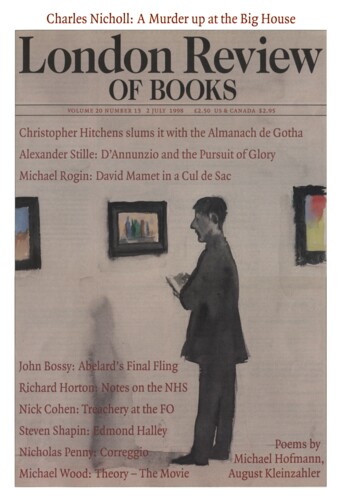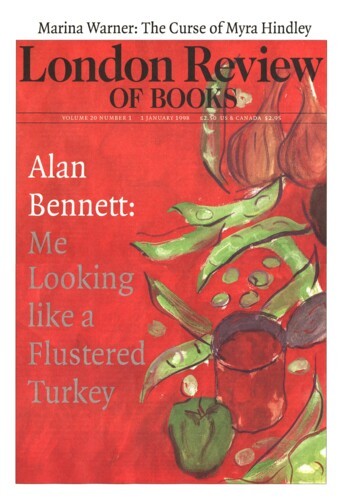The Candidate of Beauty: D’Annunzio and the Pursuit of Glory
Alexander Stille, 2 July 1998
Some writers are as interesting to read about as to read: writers such as Byron, Wilde, Hemingway, Fitzgerald and D.H. Lawrence, who saw their lives as extensions of their art and in many cases set out to shape their own time as well as to describe it in their work. Others, of similar ambition but more modest talent, defined their age as much through the defects of their work as its merits, and what they wrote increases in historical density as it loses literary freshness, becoming a kind of stratigraphic layer in an archaeological dig. The novels of Disraeli, Vita Sackville-West, Georges Sand and Jack London and the plays of Clifford Odets come to mind.


